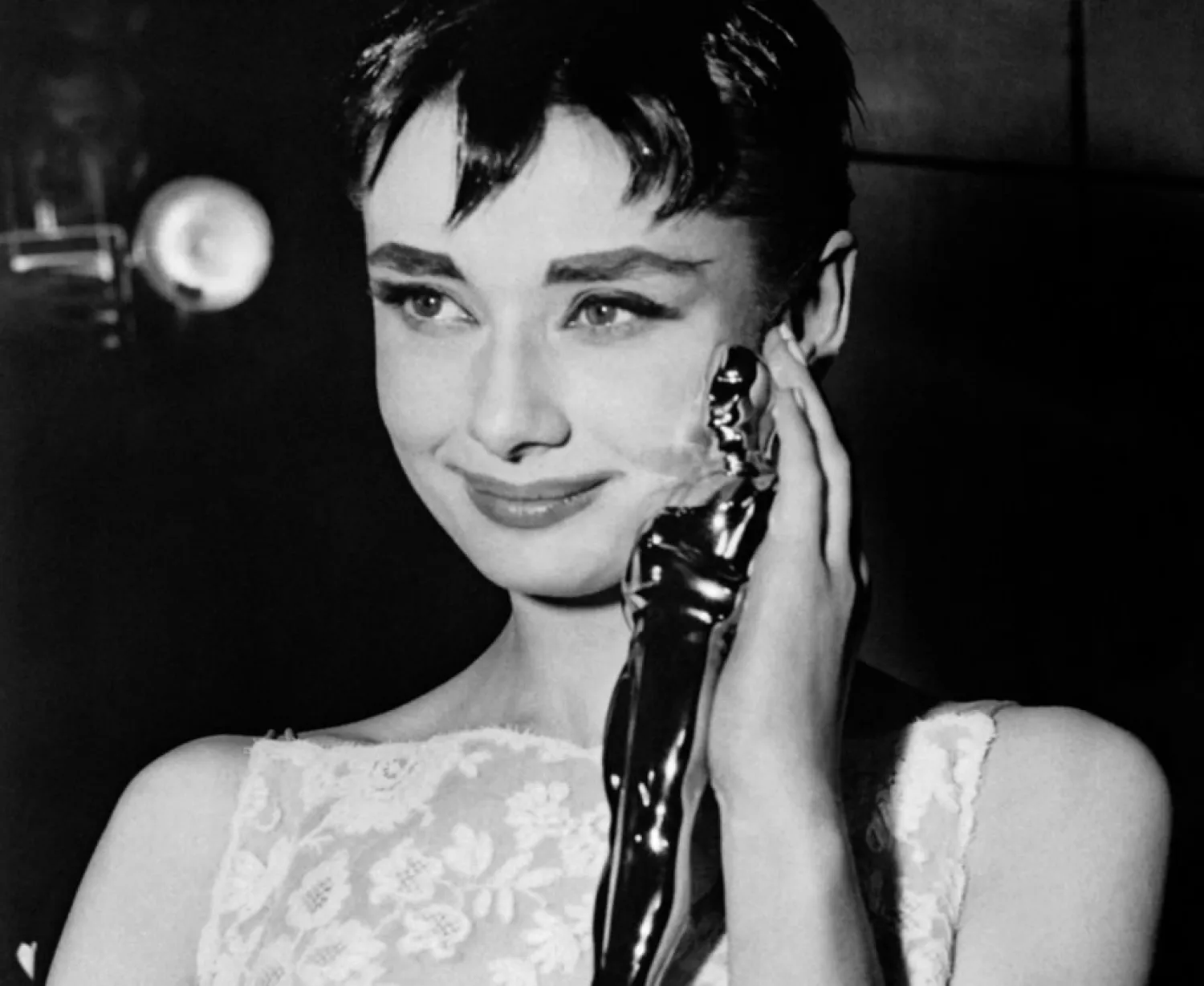Audrey Hepburn has been the star of many books before and after she left this world. French biographer Guillaume Evin has recently released a new book revolving around the journey of the British star whose movies still charm cinema lovers 50 years after she ended her career, and around 30 years after her death from cancer. Evin wrote many popular books about several stars including Steve McQueen, Brigitte Bardot, and Alain Delon, in addition to many others about the Scottish actor Sean Connery and his character in the James Bond movies.
Hepburn, who was born in Belgium, amazed Hollywood with her exceptional talent in the 1950s, although she wasn't blonde and chubby actress like the stars of that time. She was so skinny, with black hair, two wide eyes, and the uncanny fitness of a ballerina. These characteristics caught the attention of many famous fashion designers, mostly the French Hubert de Givenchy who built a strong decades-long friendship with her.
Thanks to her unique personality, she managed to break into the exclusive club of actresses who won the four top cinema awards: Emmy, Grammy, Tony, and Oscar. She was awarded the 1954 Academy Award for Best Actress for her role in "Roman Holiday" directed by William Wyler and co-starred by Gregory Peck. She also won a BAFTA and a Golden Globe for her performance in the same movie. In 1955, she was awarded a Henrietta Award for World Film Favorite. She was also a prominent humanitarian activist who focused on helping children as a UNICEF ambassador. After her death, Hepburn won a Jean Hersholt Humanitarian Award and the Presidential Medal of Freedom for her humanitarian work.
The book highlights many phases of the British star's journey, starting from a miserable childhood in a boarding school, the Second World War, and her struggle with her father, who was a Nazi supporter and abandoned his family and divorced her mother. However, the skinny girl who never thought she could survive the war found her way to the big screen, fame, and stardom. Yet, the 38-year-old Audrey decided to give up on acting at the peak of her success to dedicate her life to her two sons, and used her fame to serve the children care associations in poor countries.
Released by Casa editions, the 200-page book was issued with a box including a brochure and a CD of the "Love in the Afternoon," one of Hepburn's iconic movies. It was directed by Billy Wilder and screened in 1957. She co-starred it with the great Gary Cooper, playing a young woman who falls in love with a manipulative older man. The CD features a new edition of the movie restored by Carlotta Films.
Hepburn also inspired a series produced by the Wildside Company. Her son Luca Dotti co-wrote the script of the series which depicts the amazing life of an unforgettable actress and her subtle roles in movies like Funny Face and My Fair Lady. Luca, Hepburn's son from her Italian husband took his ideas for the series from a 2015 book entitled Audrey at Home. The series followed a movie about Hepburn starred by Jennifer Love Hewitt in 2000.
In a recent interview with The Sun, Sean Hepburn Ferrer, 60, her other son from her American husband, actor Mel Ferrer, said his mother lived many emotional failures despite her outstanding career. The interview discussed a documentary entitled "Audrey: More Than an Icon" that explores the "deep pains she hid behind her beautiful smile." Ferrer added that his mother always opened up to him about what she was facing with teary eyes, and asked for his advice, but he was a little boy and he didn't know how to help her.









